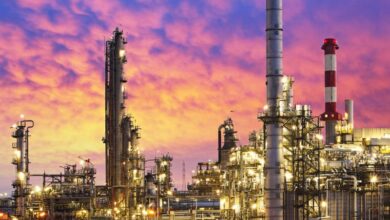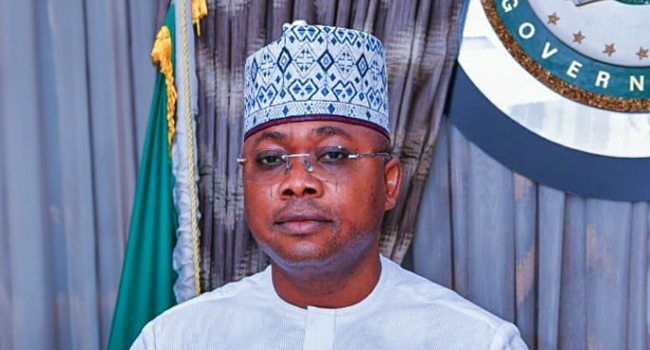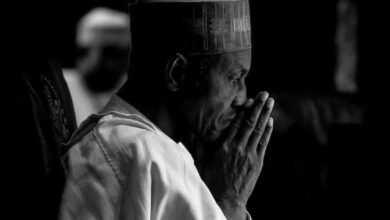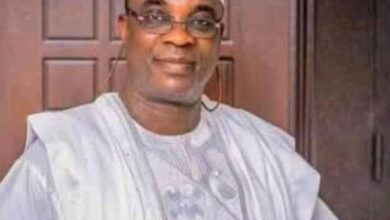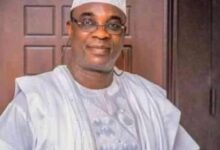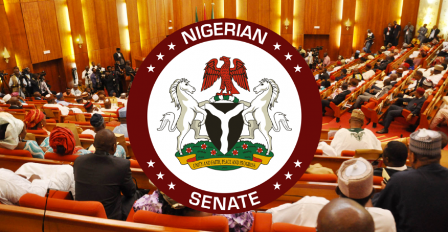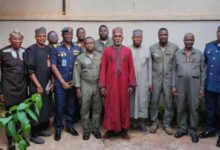Buhari meets with CEOs of Dutch companies, assures of safe, secure Nigeria

*As President returns with fresh investments in textile park
*Another Dutch company coming with fresh 11m euro ‘ready-to-drink project’
Mr David Suddens of Vlisco said the company would invest on 400 hectares of land for a textile park in Nigeria, while Mr Hein Schumacher of FrieslandCampina described Nigeria as “a most important country to us,” adding that the conglomerate would invest about 11 million euros in a “ready to drink project, using 100% locally sourced milk.”

The Dutch investors have been assured of safe and secure Nigeria where not only that their investments would be safe but also they would yield handsome returns.
Giving this assurance on Monday during a meeting with Chief Executive Officers of Dutch companies at The Hague, Netherlands, was Nigeira’s President Muhammadu Buhari who jetted out of Nigeria on Sunday on an official visit to the Dutch country.

On the sidelines of the visit, President Buhari, according to his Special Adviser on Media and Publicity Chief Femi Adesina, said, “Stability was the first thing in our campaigns. You have to secure a country first, before you can efficiently manage it. Before businesses can thrive, security is paramount. That is why we lay so much emphasis on securing the country.
“After security, our next emphasis is reviving the economy, and then, fighting corruption,” the President said.
He commended the many Dutch-owned companies operating in Nigeria for dealing fairly, noting that with many of them, “the relationship dates back more than two generations, and it is now almost a blood relationship rather than commercial.”
Urging the businesses to build factories in Nigeria, and source raw materials locally rather than wholesale import, President Buhari said he was impressed with the economic cooperation between Nigeria and Netherlands.
Speaking specifically about Royal Dutch Shell and the harnessing of Nigeria’s gas potentials, the President said: “We are more of a gas than petroleum producing country. We should be making more money from gas today than we make from petroleum, but the plans we made were scuttled.

“When I was Petroleum Minister (in the 1970s) for three-and-a-quarter years, the plan we had was to have 12 LNG trains by 1983, but more than a generation later, we are just on the 7th train. This was because some people came, and did just what they liked. If they knew what they were doing, we would have gone very far by now.”
In his remarks, Mr David Suddens of Vlisco said the company would invest on 400 hectares of land for a textile park in Nigeria, while Mr Hein Schumacher of FrieslandCampina described Nigeria as “a most important country to us,” adding that the conglomerate would invest about 11 million euros in a “ready to drink project, using 100% locally sourced milk.”
He also pledged continuous training for dairy farmers, and provision of fortified milk for school pupils.
Mr Andrew Brown of Shell, which has done business for over 60 years in Nigeria, with over 3,000 local employees, said the company would maintain its emphasis on oil and power generation, while Mr Roland Pirmez of Heineken commended the government for “stability in exchange rate for the past six to eight months.”
He added that the company was also planning to use renewable energy for its power needs,
Mr Klaus Struilesma of a company called Cownexxion indicated the interest of the organization in building cattle ranches in Nigeria.
Over 20 CEOs of Dutch-owned companies were at the roundtable meeting.


